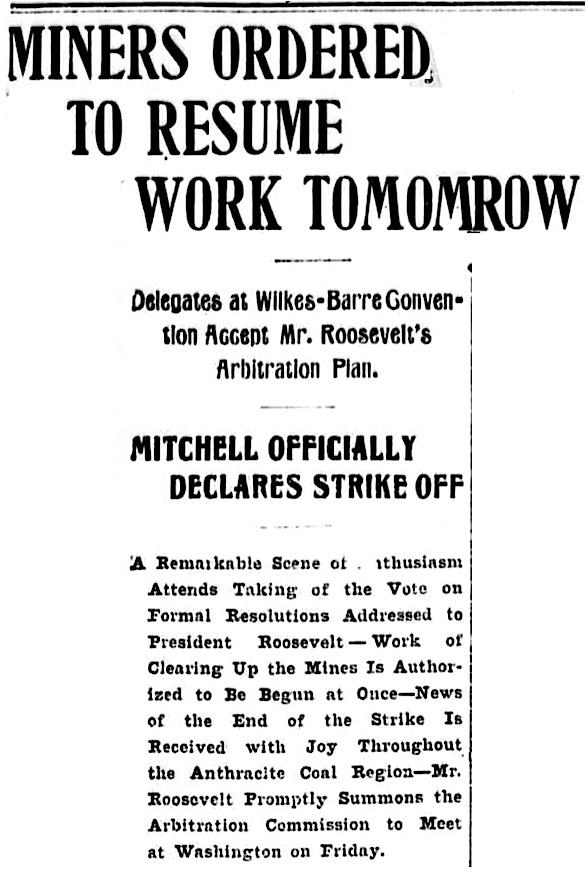
[Part II of II]
REJOICING AT SHENANDOAH.
———-
Eighteenth Regiment Band Leads
the Parade of Miners.
By Exclusive Wire from The Associated Press.
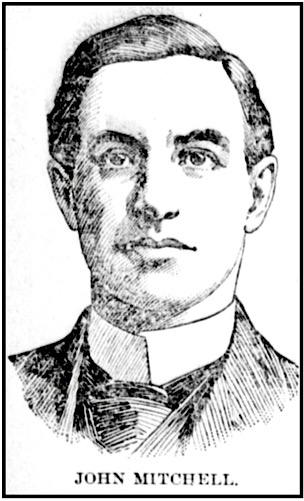
Shenandoah, Pa., Oct. 21.-News that the convention declared the strike off reached Shenandoah at 12 o’clock, and almost simultaneously every bell in the town was ringing and the whistles of every factory and breaker pealed joyous notes. There was a spontaneous outpouring of people and ten minutes after the good news reached town the streets were crowded.
At Mahanoy City and elsewhere in the anthracite field the news of the strike settlement was received with wild enthusiasm. There was blowing of whistles and ringing of bells, and almost the entire population of the towns assembled in the streets. In some localities there were impromptu parades, in which the fire departments and other organizations joined in some instances.
Pathetic scenes were enacted as the men, who have been idle and under great strain for nearly six months, rushed off to prepare for work.
Colonel Rutledge sent the Eighteenth Regiment band into town this afternoon to take part in the strike settlement celebration. The band marched through the streets at the head of a mine workers’ parade and was wildly cheered all along the line. Nearly every building in the town is decorated with flags, and the people in general appear almost insanely happy. Besides the soldiers’ band, two other bands took part in the demonstration.
—————
PRESIDENT ACTS PROMPTLY.
———-
He Summons the Members of Commission
to Meet on Friday.
By Exclusive Wire from The Associated Press.
Washington, Oct. 21.-Shortly before 3 o’clock this afternoon, President Roosevelt received a telegram from Wilkes-Barre, Pa., informing him that the convention of miners had declared off the anthracite coal strike. The telegram was signed by John Mitchell, chairman, and W. B. Wilson, secretary of the convention, and was identical with that made public at Wilkes-Barre before noon today.
Immediately on receipt of this Information, the following telegram was sent to Mr. Mitchell:
White House, Washington, Oct, 21, 1902
Mr. John Mitchell, Chairman of Convention, Wilkes-Barre, Pa.:
Upon receipt of your telegram of this date, the president summoned the commission to meet here on Friday next, the 24th instant, at 10 a. m.
George B. Cortelyou, Secretary.
Continue reading “Hellraisers Journal: Great Anthracite Strike Ended; Miners Agree to Accept Judgement of Roosevelt’s Commission, Part II” →
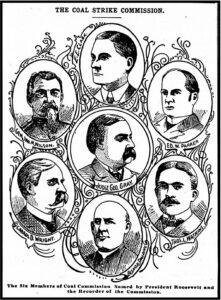

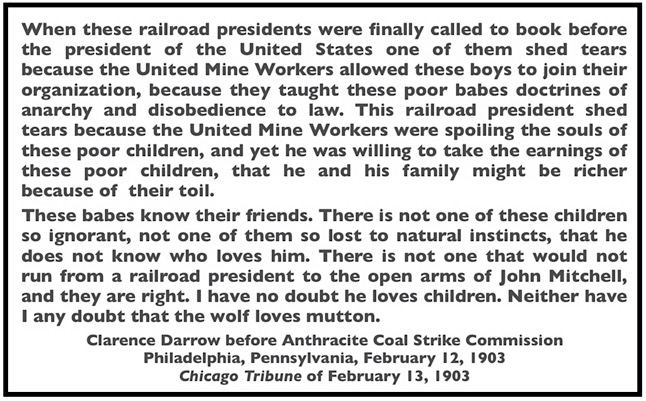 —————
—————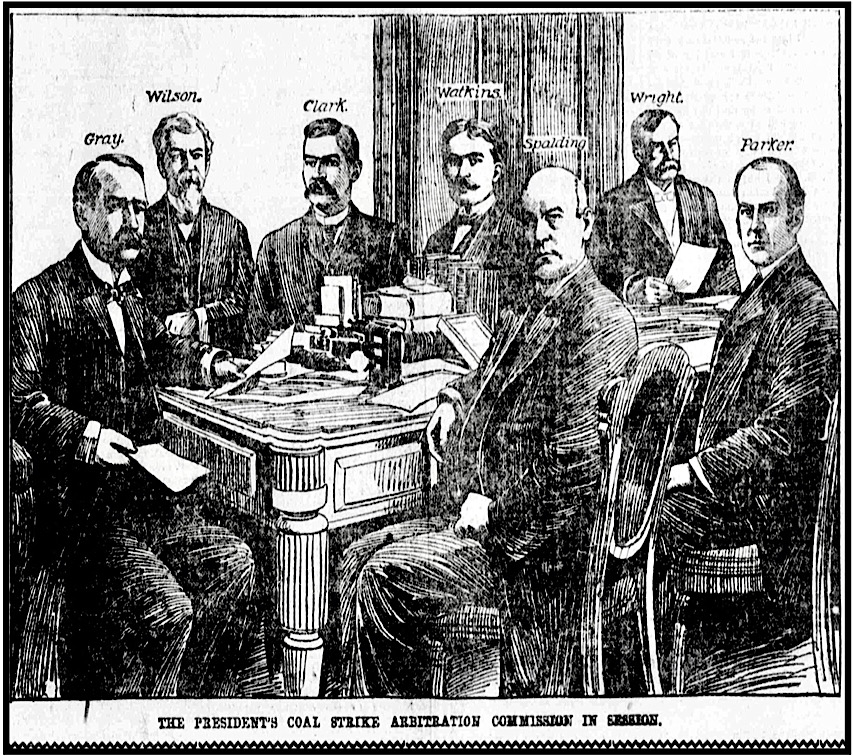
 —————
—————
